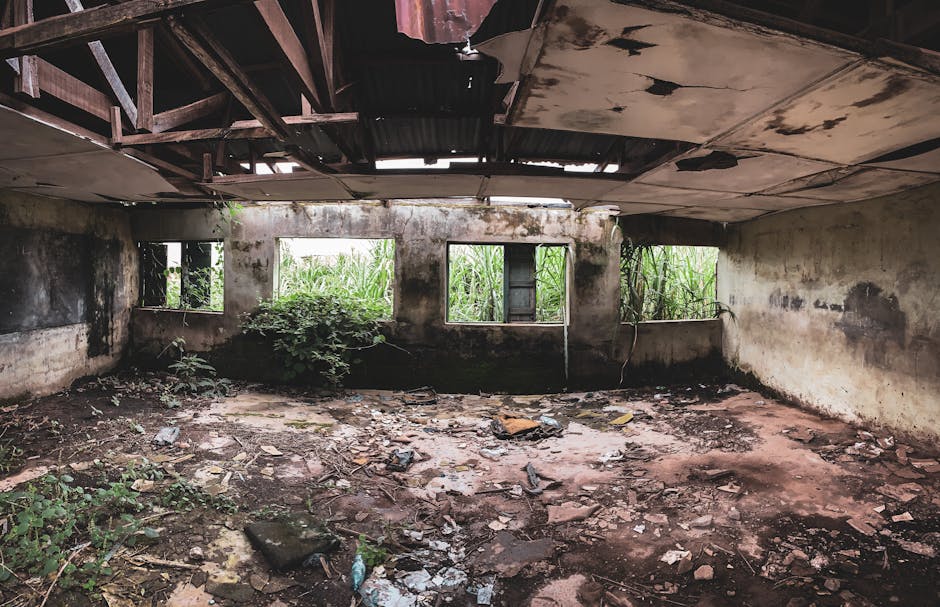Hurricane damage attorneys are your legal lifeline when your property has been ravaged by a storm, and you’re facing insurance claim issues. When a hurricane hits, it often brings a brutal mix of wind, rain, and flooding, leaving behind a trail of destruction. In Florida, these storms are a routine but dreaded part of life, causing billions of dollars in damage each year. This is where the hurricane damage attorneys at EC Law Counsel step in to help you steer the often-complicated insurance claims process.
If you’re in a hurry, here’s what you need to know:
- Who they help: Florida property owners facing denied or underpaid insurance claims.
- What they do: Assist with filing, negotiating, and litigating insurance claims.
- How to get started: Contact EC Law Counsel to review your case and understand your options.
After a hurricane, insurance companies may use various tactics to avoid paying your claim, from citing preexisting damage to demanding unnecessary documentation. As a Florida property owner, you might find yourself battling not just the storm’s aftermath but an unwilling insurer.
EC Law Counsel can make this fight easier. They help ensure that your claim is handled fairly, working to get you the compensation you deserve so you can start rebuilding your home and your life.

Understanding Hurricane Damage Claims
Hurricanes can cause a wide range of damage to homes and properties. Understanding the common types of damage can help you prepare and respond effectively. Here are some of the most frequent types of hurricane damage:
- Broken Windows and Compromised Doors: High winds can shatter windows and break doors, leaving your home exposed to the elements. Protecting these entry points is crucial to minimize further damage.
- Projectiles: Hurricanes can turn ordinary objects into dangerous projectiles. Debris like tree branches and building materials can cause significant damage to your property.
- Fire Damage: Electrical fires are a common but often overlooked type of hurricane damage. Downed power lines and electrical shorts can ignite fires, adding to the destruction.
- Flooding and Moisture Damage: Flooding is one of the most devastating effects of a hurricane. It can ruin your home’s foundation, walls, and personal belongings. Moisture can also lead to mold growth, causing long-term health risks.
- Structural Damage: The sheer force of a hurricane can compromise the structural integrity of your home. Roofs can be torn off, walls can collapse, and foundations can crack.
Several factors contribute to the extensive damage caused by hurricanes. Understanding these causes can help you better prepare and protect your property.
- High Winds: Hurricanes bring extremely high winds that can reach speeds of over 100 mph. These winds can rip off roofs, break windows, and turn debris into dangerous projectiles.
- Storm Surges: A storm surge is a rise in sea level caused by a hurricane’s winds pushing water onto the shore. This can lead to severe flooding, especially in coastal areas. Storm surges are often the most deadly aspect of hurricanes.
- Torrential Rains: Hurricanes can dump several inches of rain in a short period, leading to flash floods. This rain can overwhelm drainage systems and cause widespread flooding.
Why Insurance Companies Deny Hurricane Damage Claims
Common Tactics Used by Insurance Providers
When dealing with hurricane damage claims, insurance companies often resort to various tactics to minimize their payout. Understanding these tactics can help you better steer the claims process and protect your rights.
Delaying Claims: One common tactic is to delay the processing of claims. Insurers might drag their feet until the filing deadline is dangerously close, hoping you’ll miss it and forfeit your claim.
Denying Payment for Unnecessary Repairs: Insurers may argue that certain repairs are unnecessary or unrelated to the hurricane damage. This can significantly reduce the amount they are willing to pay.
Citing Preexisting Damage: Insurance companies often claim that the damage was preexisting and not caused by the hurricane. This is a frequent reason for denying claims.
Insisting on Unnecessary Paperwork: They might ask for excessive documentation, making the process cumbersome and frustrating. This can delay the claim and discourage you from pursuing it further.
Stating the Damage Isn’t Covered: Sometimes, insurers will argue that the damage sustained is not included in your policy. This can be particularly tricky if your policy language is complex or vague.
Underpaying Claims: Even if they approve your claim, insurers might undervalue it. They might use outdated pricing methods or unreliable estimates to justify a lower payout.
Misrepresentation or Concealment of Policy Terms: Some insurers may misrepresent or omit important policy terms, leaving you unaware of your full coverage. This can lead to misunderstandings and denied claims.
Intimidation or Coercion: In some cases, insurers may use aggressive tactics to discourage you from pursuing your claim. This can include threatening legal action or making false statements about your policy.
Failure to Investigate: Insurance companies must promptly and thoroughly investigate your claim. However, they may neglect this duty, failing to send an adjuster or request necessary documentation.
Low-Ball Offers: Insurers might offer settlements far below the actual value of your claim. Accepting these offers can mean forfeiting your right to pursue additional compensation.
Delaying Claim Processing: Repeatedly asking for additional information or failing to provide timely updates can prolong the claims process, causing financial hardships and delaying necessary repairs.
If your insurance company engages in any of these tactics, document all interactions and gather evidence. Consulting with hurricane damage attorneys can help you understand your rights and steer the claims process effectively.
The next section will guide you through the steps to take if your claim is denied.
How Hurricane Damage Attorneys Can Help
Steps to Take if Your Claim is Denied
If your hurricane damage claim gets denied, don’t lose hope. Hurricane damage attorneys can provide the legal representation you need to challenge the decision. Here are the steps they can help you take:
1. Review Your Policy
First, carefully review your policy and the denial letter with your attorney. Understand the specific reasons for the denial and check for any policy exclusions, limitations, or conditions. This helps you assess the validity of the denial.
2. Contact Your Insurance Company
Have your lawyer reach out to your insurance company. They can discuss the denial and seek clarification on the specific reasons outlined in the denial letter. This step is crucial to identify any misunderstandings or errors.
3. Provide Additional Documentation
Your attorney might need to submit additional documentation to support your claim. This could include photographs, videos, expert opinions, repair estimates, or any other relevant evidence. Demonstrating the extent of the hurricane damage can strengthen your case.
4. File an Appeal
If you believe the insurer denied your claim improperly, your attorney can file an appeal. They will follow the insurer’s specific procedures and submit any additional information that supports your claim. Keep records of all communication related to the appeal process.
5. Mediation or Arbitration
Some insurance policies include provisions for mediation or arbitration to resolve disputes. These processes involve a neutral third party to facilitate a resolution between you and the insurance company. Your attorney will guide you through this process.
6. Notify the State Insurance Department
If your insurer denies your appeal or acts in bad faith, your attorney can file a complaint with your state’s insurance department. They can investigate your case and help resolve the dispute.
7. File a Lawsuit
If all other options are exhausted, your attorney may recommend filing a lawsuit against your insurance company. They will represent you at trial and present a compelling case to the court to sway its decision in your favor.
8. Negotiation and Settlement
Throughout the entire process, your attorney will negotiate with the insurance company on your behalf. Their goal is to reach a fair settlement that covers all your damages and losses.
Case Study: Florida Homeowners Battle for Insurance
A recent Reuters article highlighted the struggles of Florida homeowners dealing with insurance claims after Hurricane Ian. Many faced delays, low-ball offers, and outright denials. With the help of skilled attorneys, some homeowners successfully challenged these denials and received the compensation they deserved.
Navigating the claims process can be overwhelming, but with the right legal support, you can fight for your rights and secure the funds needed to rebuild your life.
The next section will answer some frequently asked questions about hurricane damage claims.
Frequently Asked Questions about Hurricane Damage Claims
How long does an insurance company have to settle a hurricane claim in Florida?
In Florida, insurance companies must follow specific timelines to settle hurricane claims. Once you report your claim, the insurer has 14 days to acknowledge it. They are then required to resolve the claim within 90 days. However, the process might take longer if additional information or documentation is needed. Delays can be frustrating, but knowing these deadlines helps you hold your insurer accountable.
What is the deductible for hurricane damage?
In coastal states like Florida, homeowners insurance policies often have a special deductible for named storms, including hurricanes. This deductible is usually a percentage of your home’s insured value, not a fixed dollar amount. For example, if your home is insured for $300,000 and your policy has a 5% hurricane deductible, you would be responsible for $15,000 before your insurance starts to pay.
What is the average cost of hurricane damage?
Hurricanes are among the most costly natural disasters. The financial impact varies, but on average, tropical cyclones cause billions in damages each year. For instance, Hurricane Beryl in 2024 had an estimated $2.7 billion in insured losses in the U.S. alone, according to Karen Clark & Co. This figure includes residential, commercial, and industrial properties, as well as automobiles and business interruption.
Understanding these costs and the financial implications can help you better prepare and steer your insurance claims process.
Conclusion
Navigating the aftermath of a hurricane can be overwhelming, especially when dealing with property damage and complex insurance claims. EC Law Counsel is here to provide the legal assistance you need to secure the compensation you deserve.
Our team has a deep understanding of the property insurance industry, having worked as insurance adjusters and underwriters. This inside knowledge allows us to effectively handle your hurricane damage claims, avoiding unnecessary delays and ensuring you get a fair settlement.
Why Choose Us?
- Experience: With over a decade of experience in hurricane damage claims, we know how to manage the process from start to finish.
- Personalized Service: We offer a custom approach, giving each case the attention it deserves.
- Comprehensive Support: From initial claim filing to negotiation and litigation, we are with you every step of the way.
Get in Touch
If you’re facing challenges with your hurricane damage claim, don’t go through it alone. Contact EC Law Counsel for a free case evaluation. Let’s work together to rebuild your life and secure the financial recovery you need.
Fill out our online form to get started. We’re here to help you every step of the way.
Was this article helpful? Have more questions? Feel free to reach out to us anytime. We’re here for you.





